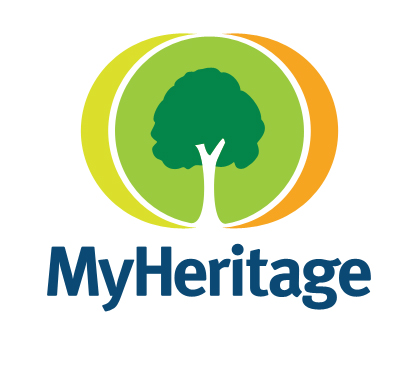Blog


The British Newspaper Archive Reaches 8 Million Online Pages
 The British Newspaper Archive has reached a new major milestone: 8 million newspaper pages now online! The counter on the homepage ticked over that amount while adding editions of the Sheffield Daily Telegraph, Cheshire Observer and The Yorkshire Post and Leeds Intelligencer.
The British Newspaper Archive has reached a new major milestone: 8 million newspaper pages now online! The counter on the homepage ticked over that amount while adding editions of the Sheffield Daily Telegraph, Cheshire Observer and The Yorkshire Post and Leeds Intelligencer.
If you’ve tried searching for a person, event or place before without success, it’s well worth trying again now–and you can try a search for FREE. The amount online has doubled since the website launched with 4 million pages in November 2011. The time period covered now stretches from 1710 – 1954 too, much broader than at launch.
Looking for something that’s not there yet?
Thousands of pages are added every week, so your chance of finding something amazing increases all the time. 825,000 new pages have already been added so far this year. See a list of the newspaper titles that have been added or updated in the last 30 days here.
Who’s doing this?
The British Newspaper Archive is a partnership project between the British Library and DC Thomson Family History (formerly known as brightsolid online publishing, mother company of the FindMyPast family of genealogy websites). From November 2011 to 2021, up to 40 million pages from historical newspapers across the UK and Ireland will be uploaded to the website.
Learn more about finding your relatives in the paper in my book, How to Find Your Family History in Newspapers. It’s available as an e-book or in print. Read all about it here!

A New Genealogists’ Declaration of Rights: You Can Sign It
 A new Genealogists’ Declaration of Rights was announced before a crowd of more than 2,500 genealogists at the NGS 2014 Family History Conference in Richmond, Virginia recently. Jordan Jones, President of the National Genealogical Society (NGS), a sponsoring member of the Records Preservation and Access Committee (RPAC).
A new Genealogists’ Declaration of Rights was announced before a crowd of more than 2,500 genealogists at the NGS 2014 Family History Conference in Richmond, Virginia recently. Jordan Jones, President of the National Genealogical Society (NGS), a sponsoring member of the Records Preservation and Access Committee (RPAC).
According to the NGS Press Release, “The Declaration of Rights is a statement advocating open access to federal, state, and local public records. The Declaration affirms America’s long history of open public records, which has been threatened the last few years over concerns about identity theft and privacy. The Records Preservation and Access Committee has worked with state and federal legislators as well as local public officials for more than twenty years in support of legislation and regulations that achieve a balance between access and privacy. The Declaration of Rights has been approved by the board of directors of the three sponsoring organizations: The National Genealogical Society (NGS), the Federation of Genealogical Societies (FGS), and the International Association of Jewish Genealogical Societies (IAJGS).”
Genealogists from all over the U.S. signed the Declaration at NGS, and will continue to do so in the coming months at the IAJGS Conference on Jewish Genealogy in Salt Lake City, Utah (27 July–1 August) and the Federation of Genealogical Societies Conference in San Antonio, Texas (27–30 August). You can click here to sign it electronically if you would like to (though you can’t do it in person.)
The press release further states, “Genealogists advocate the right of access to records held by government agencies including but not limited to vital records (births, marriages, deaths, divorces); land conveyances and mortgages; tax assessments; guardianships; probates of estates; criminal proceedings; suits of law and equity; immigration; military service and pensions; and acts of governmental entities. Genealogists further advocate that they need to be allowed access to original records when photocopies, microfilm, digital images, or other formats are insufficient to establish clear text, context, or completeness of the record. The rights of genealogists specified in the Declaration object to numerous barriers created to deny them access to records.
“Thousands of professional genealogists do research every day on behalf of clients, government agencies, and attorneys. Of particular note are the many forensic genealogists who assist the Department of Defense in locating heirs for the repatriation of remains from previous wars; assist county coroners in the identification of unclaimed persons; work with attorneys in locating missing and unknown heirs involving estates, trusts, real estate quiet title actions, oil and gas and mineral rights, and other similar legal transactions; trace and track heritable medical conditions where finding distant cousins can facilitate early treatment and possibly prevent a premature death; research stolen art and artifacts for repatriation; and identify American Indians, Native Alaskans, and Native Hawaiians to determine eligibility for tribal benefits.”

Look Who Just Joined the Genealogy Gems Community!
 MyHeritage has signed on to sponsor The Genealogy Gems Podcast! Their support helps us to continue to bring you free multimedia content to inspire and inform your genealogy journey.
MyHeritage has signed on to sponsor The Genealogy Gems Podcast! Their support helps us to continue to bring you free multimedia content to inspire and inform your genealogy journey.
Our editorial team has spent several months getting to know MyHeritage.com. We think you’ll love their…
International membership. MyHeritage serves over 70 million members worldwide in 40 languages. Did your English-speaking ancestors originate in the British Isles? Are you discovering Sephardic roots in Spain? MyHeritage members may be your cousins—or know something about them. Check out their world membership map here.
24/7 record searching technology. MyHeritage uses a unique and powerful search system called Record Matches to constantly cull 5 billion historical records for your family. It’s the only family history interface out there using semantic analysis to search newspaper articles, books, and other free-text documents. It is also the first to translate names between languages. I personally like that matches from MyHeritage’s historical newspaper collections show up toward the top. It’s a great way to find obituaries!
Millions of trees. MyHeritage can search over 1.5 billion records in their own 27 million trees and recently-acquired Geni.com’s unified tree. From a single screen, members can search all those trees plus WikiTree and other trees. But you don’t even have to search. MyHeritage’s unique Smart Matching technology intelligently matches each family tree to hundreds of millions of profiles in other family trees. Members are alerted when new matches appear on the site.
Offline software companion. Family Tree Builder 7.0 is free software that allows you to keep a master copy of your family tree offline. Read my blog post on that topic here.
Great app. The MyHeritage app for iPhone, iPad and Android 2.2 helps you research, record and share your family history on the go. You can browse records, photo-share, and show off your tree in its beautiful display.
Genealogy Gems will continue to bring you news and gems on a wide range of genealogy topics and companies, not just MyHeritage. But we do encourage you to get to know MyHeritage.com. We choose our advertisers carefully and are very proud to partner with them!




